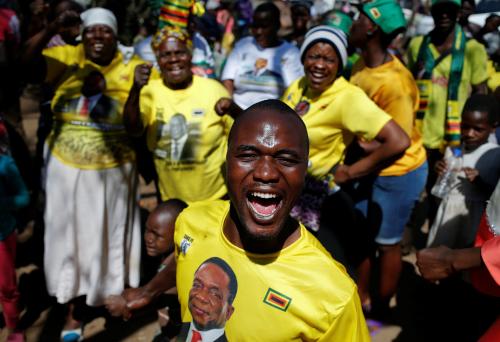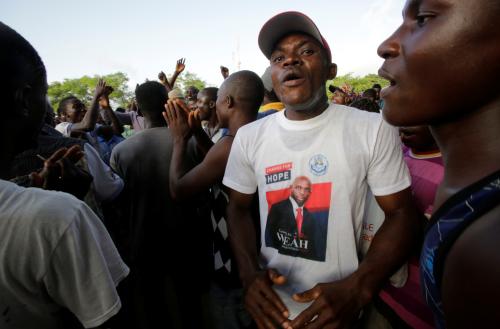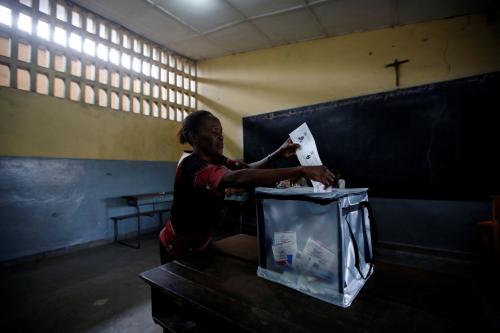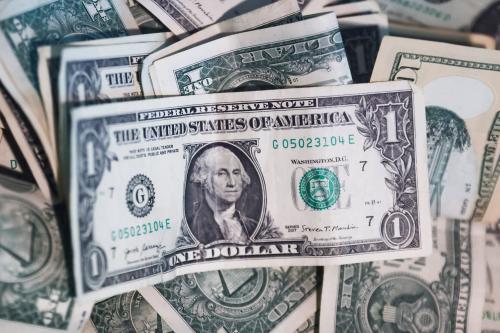Electoral violence in Guinea and Congo kills dozens
Guinea published the results of the October 11 presidential elections this week. Late Saturday, the electoral commission declared incumbent President Alpha Conde as the winner in the first round of voting with 58 percent of the votes. However, the country’s opposition has rejected the results and called for peaceful protests. Opposition leader Cellou Dalein Diallo accused the government of committing electoral fraud through ballot stuffing, allowing minors to vote, changing the electoral map, and intimidation. Yet election monitors from the European Union have deemed the elections valid, despite the presence of “severe logistical difficulties.”
Sever pre- and post-election violence accompanied the elections. An Amnesty International report states that 13 people were killed and 80 injured in election-related violence. The report also claims that Guinea’s security forces contributed to the violence.
In other electoral news, Congolese protesters have clashed with security forces ahead of the Sunday’s referendum, which could allow President Sassou Nguesso to run for a third term. As dozens of demonstrators took to the streets to contest the constitutional change, security forces fired tear gas to disperse the crowds. Four people were killed as a result. U.S. State Department Spokesman John Kirby released a statement urging president Nguesso to postpone the referendum.
Electricity rates on the rise in Nigeria
On Wednesday, the Nigerian Electricity Regulatory Commission announced that new electricity rates will come in place before November 15. The decline in oil prices prompted the Central Bank of Nigeria to devalue the Naira twice since September. The weaker Naira, coupled with rising inflation has prompted the substantial rise in electricity rates, which will be up to 40 percent higher than previous rates. Specific rate hike will depend on the electricity provider. Nigeria’s electricity industry saw a major wave of privatization in 2013, when the government broke apart its monopoly on electricity by selling 15 state-operated companies to private enterprises. However despite efforts to privatize, output remains drastically low. Total output for Nigeria’s electricity companies has not yet surpassed 5,000 megawatts—only one-third of public demand.
In other news, the Nigerian parliament has moved to break up the Petroleum Industry Bill, which has been stuck in the policy pipeline for 7 years. Parliament is optimistic that breaking up the bill will make its measures more likely to pass. The non-passage of the legislation has cost the country a reported $15 billion. The passing of the bill could boost gas supply, which would in turn alleviate one of the aforementioned pressures on the electricity industry.
President Zuma cancels proposed tuition increase amid student protests
South African students have rallied together to protest over the proposed 10 percent increase in university tuition. The proposed tuition increase was later downgraded to a 6 percent increase. The students have refused to accept the bargain, and the protests continued resulting in the arrest of nearly 100 students. Police officers used stun grenades to disperse the growing crowds of demonstrators. This week’s protests represent one of the biggest student movements in South Africa since 1994. The students, who are from modest socio-economic backgrounds, have accused the government of not providing their families with substantial financial support. The #FeesMustFall demonstrators notably stressed the detrimental effects of a tuition hike on poor black young adults.
Friday, President Zuma declared after meeting with student leaders and university managers that there will be no tuition increase for students in 2016. President Zuma added that the underlying causes of the protests—free education, institutional autonomy, and racism—must be addressed in the near future.
The Brookings Institution is committed to quality, independence, and impact.
We are supported by a diverse array of funders. In line with our values and policies, each Brookings publication represents the sole views of its author(s).







Commentary
Africa in the news: Electoral violence erupts in Guinea and Congo; Electricity rates rise in Nigeria; President Zuma cancels proposed tuition hike amid student protests
October 23, 2015